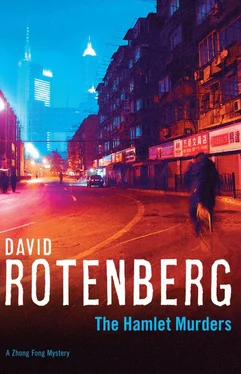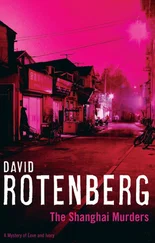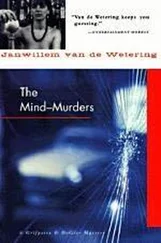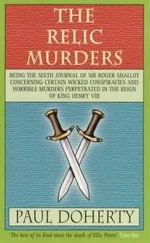David Rotenberg - The Hamlet Murders
Здесь есть возможность читать онлайн «David Rotenberg - The Hamlet Murders» весь текст электронной книги совершенно бесплатно (целиком полную версию без сокращений). В некоторых случаях можно слушать аудио, скачать через торрент в формате fb2 и присутствует краткое содержание. Год выпуска: 2011, Издательство: Schwartz Publishing Pty. Ltd, Жанр: Полицейский детектив, на английском языке. Описание произведения, (предисловие) а так же отзывы посетителей доступны на портале библиотеки ЛибКат.
- Название:The Hamlet Murders
- Автор:
- Издательство:Schwartz Publishing Pty. Ltd
- Жанр:
- Год:2011
- ISBN:нет данных
- Рейтинг книги:3 / 5. Голосов: 1
-
Избранное:Добавить в избранное
- Отзывы:
-
Ваша оценка:
- 60
- 1
- 2
- 3
- 4
- 5
The Hamlet Murders: краткое содержание, описание и аннотация
Предлагаем к чтению аннотацию, описание, краткое содержание или предисловие (зависит от того, что написал сам автор книги «The Hamlet Murders»). Если вы не нашли необходимую информацию о книге — напишите в комментариях, мы постараемся отыскать её.
The Hamlet Murders — читать онлайн бесплатно полную книгу (весь текст) целиком
Ниже представлен текст книги, разбитый по страницам. Система сохранения места последней прочитанной страницы, позволяет с удобством читать онлайн бесплатно книгу «The Hamlet Murders», без необходимости каждый раз заново искать на чём Вы остановились. Поставьте закладку, и сможете в любой момент перейти на страницу, на которой закончили чтение.
Интервал:
Закладка:
As Fong gave him the phone, a darkness crossed Captain Chen’s features. “What?”
“Remind me how following the cell phone will help us find who killed Mr. Hyland?”
“Mr. Hyland was involved in a pretty risky enterprise. Perhaps someone in Dalong Fada, perhaps someone in the Beijing security services, perhaps someone who’s only peripherally involved with all this had it in for Mr. Hyland. I don’t know exactly, Captain Chen, but at this point in a murder investigation every lead has to be tracked down.”
Chen thought about that for a moment then asked, “Are you going to tell the commissioner about the data on the CD-ROM?”
Fong hesitated then said, “No.”
“I assume you haven’t told the two men from Beijing who were with Mr. Hyland either?”
Fong said nothing.
“I see,” said Chen. He opened the cell phone and planted one of the electronic bugs. “This tiny guy sends out a signal that I can receive on my PalmPilot. It lets you and me track the phone wherever it goes. And this little fellow . . . ” he said, placing the second bug in the cell phone snuggly against the first one, “. . . this one lets them follow the phone too – as long as we want.”
“And when we don’t want them to follow it anymore?”
“I dial 555 555 555 1.”
“And dialling that number . . . ?”
“Cancels the signal from their bug and starts up a new signal from our third little friend.” Like a magician at a country fair, Chen produced a third bug from the recesses of one of his baggy pant pockets and held it in the palm of his hand.
Fong watched Captain Chen complete his task.
He did not fail to notice that all of Chen’s last statements were said without the use of the word: sir.
CHAPTER FOURTEEN
Xi Luan Tu hoped it was like being a mist inside a fog – either that or this hiding in plain sight was just a way of fooling himself. No doubt the truth would be evident soon enough. He glanced over his shoulder. The southern alley entrance to what as a kid he called “the warrens” was just a quick bolt away. As boys, he and his brother had explored this massive underground network of tunnels and caves that stretched for miles beneath the streets of Shanghai. Almost every section of the Old City could be accessed by one of the hundreds of underground alleyways. Some of them were now being widened for use in Shanghai’s new subway system, but most of the passageways were still secret. The warrens ran beside, beneath and behind the buildings of the Old City. They had been used by thousands of Chinese people since their inception in the mid-1800s when the British, French and Americans had been given the only useful lands in Shanghai in the disgraceful Treaty of Nanjing. The Chinese had been forced from their homes and moved into the lowlands, the swamps by the river. At first, the warrens were a way for the Chinese to avoid the British and French rulers of their city. Year by year, Chinese hand by Chinese hand, they had expanded until they became an intricate underground world. A secret world. A world where white men were not welcome. Where a Chinese man could hide from the authorities. Tunnels, caves, stores of food and water, booby traps, false exits, culs-de-sac and abandoned subterranean pathways stretched, unmapped, for miles. Xi Luan Tu had grown up playing in the warrens. If things got too hot for him above-ground, he’d head for the warrens. It was his best chance – not to escape, because there were no escape routes out of Shanghai from the warrens, but to hide.
“How much?” the gruff man in front of his stand demanded as he pointed at the undulating carpet of life formed by the thousands of grub pupae that seethed in the barrel. Xi Luan Tu quoted him a reasonable price but not too low. He didn’t want his fellow market pupae-sellers to take too much note of the “new guy.” His forged vendor’s licence had been arranged by a follower whose father used to occupy the spot. If asked, Xi Luan Tu would inform a questioner that he was the nephew of the man who used to sell here and that he had recently arrived from Sichuan Province.
“Too much,” said the potential customer and moved on down the alley to the next grub pupaeseller.
The live things – he thought of them as grubs-intraining – continued their blind movements in the barrel. For three days he’d hidden in that very barrel while federal officers mounted sweeps in an effort to find him. Without the Dalong Fada exercises he would never have managed to maintain his sanity. The moment he lost the sense of himself as merely part of a much greater whole – the moment that he believed that he was the whole in and of himself – then the pain, the fear and misery took hold of him and led him toward madness.
He put his hands into the barrel of moving grub pupae and allowed their motion to become part of his existence. “Like spreading the molecules of yourself wide,” he thought, “and allowing all that space in.”
It was precisely as he completed that thought that two federal officers rounded the corner and headed right toward him.
Xi Luan Tu took another quick glance over his shoulder – he could beat them to the warrens’ entrance if he had to – and once there, he could lose them.
At the same time on the far side of the great city, Joan Shui was holding on to a lamppost and trying to stop the world from spinning. Wu Fan-zi seemed to be everywhere in the city. It was as if he’d just left a room whenever Joan entered or ducked into a doorway, as she approached or turned the far corner, as she turned onto a street. She’d been with her “fire-man” almost every moment of her first trip to Shanghai. Now she was here, shorn hair and all, and he was not.
She found herself drawn to the Hua Shan Hospital where she had seen him last. Where the bomb set by the American who called himself Angel Michael had ended Wu Fan-zi’s life. It was in there their hearts had met. It was in there they had seen each other. It was in there she lost him forever.
“Move along.”
Joan looked at the young man in the ill-fitting brown uniform with the insignia on his shoulder. Who was he talking to in that tone of voice?
“Move along, you!”
“Was he talking to me?” Joan thought. “I’m no stupid peasant who . . .” then she stopped even the process of that thought. It was good that he thought her nothing more than some stupid countrywoman who had come into Shanghai to beg on the streets. As long as people like him thought that way, she was safe.
“Move your fat ass!” he screamed at her.
Now that’s a bit much. Peasant yes, stupid maybe, fat ass never. But she bobbed her head and did a bit of waving with her dirty hands, as if she couldn’t understand his city accent then she put down her head and moved along.
She needed to find a phone kiosk.
She turned a corner and entered a crowded street market that ran down both sides of a narrow alley. The smell of rotting fish assailed her nose and swarms of fat flies circled her head then landed on, and seemed to taste, her filthy skin. She swatted them away only to be assaulted by the fish stink again. The gutted fish on the monger’s dirty wooden table weren’t even on ice. Those yet to be gutted swam in the brownish water of a rubber tub. A man wearing a nicely tailored suit approached the table and pointed at a large carp in the tub. The fishmonger reached into the brackish water and grabbed the fish by the tail. The thing thrashed in an effort to free itself from the monger’s grip but the merchant wasn’t about to let it go until the buyer gave his okay. They bartered briefly as the fish arched its body in protest. A price was settled on. The fishmonger stunned the thing with a smack of a short two-by-four then gutted it and wrapped it in old newsprint, using his right hand to get his money and his left to shove the guts beneath his table. The pile of guts was the source of the stink that attracted the flies. The gap-toothed fishmonger finished thanking the man in the good suit then screeched at Joan, “This not for you. This real fish. This for real people.” Then he made a gesture with his hands toward her, not unlike what he should have done to the flies that encircled his table. Joan resisted the impulse to tell this merchant exactly where he could put his comments and forced her way through the crowded market.
Читать дальшеИнтервал:
Закладка:
Похожие книги на «The Hamlet Murders»
Представляем Вашему вниманию похожие книги на «The Hamlet Murders» списком для выбора. Мы отобрали схожую по названию и смыслу литературу в надежде предоставить читателям больше вариантов отыскать новые, интересные, ещё непрочитанные произведения.
Обсуждение, отзывы о книге «The Hamlet Murders» и просто собственные мнения читателей. Оставьте ваши комментарии, напишите, что Вы думаете о произведении, его смысле или главных героях. Укажите что конкретно понравилось, а что нет, и почему Вы так считаете.












